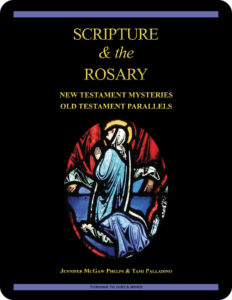raqa / fool
 The Sermon on the Mount contains a fascinating but unclear comparison in the Gospel According to Matthew 5:22 (NABRE). Jesus offers two different insults, one in Greek and one in Aramaic, that seem to have a similar meaning, but he also attributes a much harsher punishment to one of them. Scholarly opinion on what exactly is going on here is divided.
The Sermon on the Mount contains a fascinating but unclear comparison in the Gospel According to Matthew 5:22 (NABRE). Jesus offers two different insults, one in Greek and one in Aramaic, that seem to have a similar meaning, but he also attributes a much harsher punishment to one of them. Scholarly opinion on what exactly is going on here is divided.
The word raqa generally is thought to be of Hebrew origin coming from a root that means “empty.” In this context, the word used as an insult would indicate that someone is empty-headed or foolish. In Jesus’ account, using this insult involves a violation of the law with regard to the Sanhedrin, the Jewish legal body. The second insult, μωρός (moros), is of Greek origin and means “foolish” or in some cases even suggests “impious,” though that meaning seems to come secondary. Someone impious is such because that person is foolish, making foolishness the primary attribute. This insult seems to be a violation of the law and leads to Gehenna or hell.
With underlying lack of clarity about specific shades of meaning here and different languages of origin, it’s unclear why both are used and what the intention of the text is. In the broader context of the Sermon on the Mount, Jesus is redefining many tenets of Jewish law along stricter criteria. For this passage to consistently fall into that category, we would expect raqa to be a much less severe insult than moros, though from what we can tell, they seem to be synonyms.
Another more likely point of contrast isn’t in the insult but rather in the punishment. In other words, Jesus well could be implying that we shouldn’t worry about getting in trouble with the law for insulting someone. We should instead be worried about getting in trouble with God. That view seems to fit with the context and meaning of the passage. In either case, the takeaway as it applies to our daily lives is much clearer than the subtle shades of linguistic meaning. We should not insult others since God doesn’t appreciate such behavior.
you also may like our study of Scripture & the Rosary (digital only)
 Scripture & the Rosary: New Testament Mysteries, Old Testament Parallels, a 26-lesson Catholic Bible study with an imprimatur, looks at the biblical foundations of the Rosary. The study includes lessons on Pope St. John Paul II’s Rosarium Virginis Mariae (Rosary of the Virgin Mary), the Apostles’ Creed, and the Luminous Mysteries as well as the original 15 Mysteries of the Rosary. Color photographs of stained glass windows depict key scenes in the lives of Jesus and Mary. Free digital lessons rotate throughout the year on our website.
Scripture & the Rosary: New Testament Mysteries, Old Testament Parallels, a 26-lesson Catholic Bible study with an imprimatur, looks at the biblical foundations of the Rosary. The study includes lessons on Pope St. John Paul II’s Rosarium Virginis Mariae (Rosary of the Virgin Mary), the Apostles’ Creed, and the Luminous Mysteries as well as the original 15 Mysteries of the Rosary. Color photographs of stained glass windows depict key scenes in the lives of Jesus and Mary. Free digital lessons rotate throughout the year on our website.
 Click on the picture of the statue of Moses with horns (above) to learn more about Lost in Translation. A new entry is archived each Monday. Contact us to receive Lost in Translation by email every week. You may use any of the contact links on our website to ask Matthew a question.
Click on the picture of the statue of Moses with horns (above) to learn more about Lost in Translation. A new entry is archived each Monday. Contact us to receive Lost in Translation by email every week. You may use any of the contact links on our website to ask Matthew a question.
